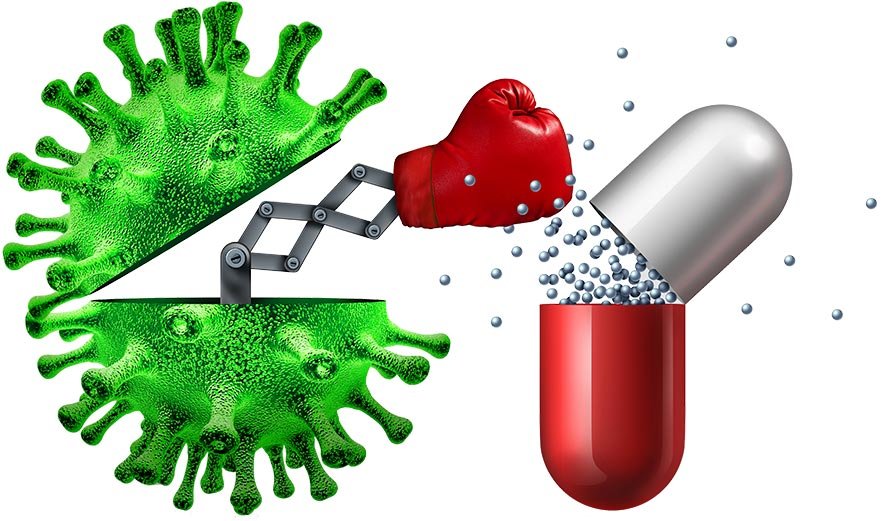When most people imagine transforming their health, they picture dramatic changes: rigid diets, punishing workout routines, or long lists of foods and habits to avoid. It feels overwhelming before the first step is even taken. But health doesn’t always hinge on radical upheaval. More often than not, it is shaped by the quiet, repeated choices we make every day—the small shifts that seem almost insignificant in the moment, but, when woven together over weeks and years, can completely change the trajectory of our lives.
The truth is, our bodies respond not just to intensity but to consistency. A single meal does not define a diet, just as a single workout does not define fitness. Instead, it is the accumulation of small, deliberate actions that sustain energy, sharpen the mind, and protect the heart. Imagine nudging the steering wheel of a car just slightly—the vehicle doesn’t immediately veer off the road, but miles later, that tiny shift places it in a completely different destination. Health works the same way.
Why Tiny Habits Matter More Than Big Promises
One of the reasons small changes are so powerful is that they are sustainable. Big promises—like swearing to never eat sugar again or to run five miles every day—often collapse under the weight of real life. Work deadlines, family obligations, stress, and fatigue all conspire to derail rigid plans. But small habits, ones that fit seamlessly into existing routines, have a better chance of sticking.
Science supports this. Research on behavior change shows that our brains resist drastic alterations, but they readily accept minor adjustments. Each small win creates momentum, builds confidence, and strengthens neural pathways that reinforce new habits. Over time, these behaviors become second nature. By focusing on modest shifts, people set themselves up for long-term success instead of short-lived resolutions.
The Ripple Effect of Micro-Choices
One fascinating thing about small lifestyle changes is that they rarely exist in isolation. A single adjustment often creates ripples that influence other areas of life. For example, choosing to go to bed half an hour earlier doesn’t just improve sleep quality—it boosts mood, reduces cravings for junk food, sharpens focus, and enhances motivation to exercise. Drinking an extra glass of water can reduce headaches, improve skin, and support digestion, which in turn boosts overall energy.
This compounding effect means that tiny changes deliver far more than their face value. It’s like planting a seed: the initial action seems small, but with time, it grows into something substantial, branching into multiple benefits that transform health in ways we couldn’t predict at the start.
Nourishing the Body with Subtle Shifts
Nutrition often feels like the most intimidating part of health. With endless diet trends and conflicting advice, it can be hard to know where to begin. But again, small changes can make a profound difference without requiring extreme restrictions.
Consider swapping a sugar-laden soda for sparkling water with lemon. That single choice, repeated daily, saves thousands of empty calories in a year and reduces the risk of metabolic disorders. Adding one serving of vegetables to dinner may seem minor, but it boosts fiber, vitamins, and antioxidants that support the immune system and heart. Even slowing down during meals and paying attention to hunger cues helps prevent overeating by allowing the brain time to register fullness.
Modern research on nutrition emphasizes patterns over perfection. A diet does not need to be flawless; it needs to trend consistently toward whole, minimally processed foods. Each substitution—a piece of fruit instead of a candy bar, whole grains instead of refined bread, olive oil instead of margarine—adds to a cumulative effect that fortifies health over time.
Movement as Medicine
Exercise does not need to mean long hours at the gym or punishing training sessions. Movement itself is medicine, and even small increments of activity have profound benefits. A 10-minute walk after meals can stabilize blood sugar, aid digestion, and improve cardiovascular health. Taking the stairs instead of the elevator strengthens muscles and boosts daily calorie expenditure. Stretching for a few minutes each morning enhances flexibility and reduces stiffness that builds up from sedentary routines.
The human body was designed for movement, and modern lifestyles have confined many people to desks and screens. But biology rewards even the simplest gestures of physical activity. Research shows that breaking up sitting time with just two minutes of light movement every half hour reduces the risk of diabetes and cardiovascular disease. Over weeks and months, these micro-movements accumulate into measurable improvements in strength, endurance, and resilience.
Importantly, small changes in movement often lead to larger ones. Someone who starts with a five-minute walk may eventually find joy in longer strolls, then perhaps light jogging, cycling, or dancing. The journey begins with the smallest step.
The Subtle Art of Rest and Recovery
Sleep is often sacrificed in the name of productivity, but it is one of the most powerful foundations of health. Chronic sleep deprivation is linked to obesity, diabetes, depression, weakened immunity, and even shortened lifespan. Yet improving sleep quality does not necessarily demand dramatic interventions. Small lifestyle changes can have a profound impact.
Dimming screens and lights an hour before bed helps the body produce melatonin, the hormone that regulates sleep. Going to bed and waking up at consistent times trains the circadian rhythm, making sleep more restorative. Even creating a simple bedtime ritual—such as reading, journaling, or listening to calming music—signals the body that it is time to wind down.
These subtle adjustments accumulate into better rest, which in turn enhances cognitive function, mood, metabolism, and physical recovery. Just as importantly, quality sleep strengthens willpower, making it easier to sustain other healthy habits.
Stress Management in Small Doses
Stress is unavoidable, but the way we manage it shapes long-term health outcomes. Chronic stress floods the body with cortisol, leading to inflammation, high blood pressure, weight gain, and weakened immunity. While eliminating stress altogether is unrealistic, small strategies for managing it can dramatically reduce its impact.
Deep breathing for even a few minutes slows the heart rate and activates the parasympathetic nervous system, shifting the body into a state of calm. Brief mindfulness practices—like noticing the sensation of your feet on the ground or the sound of your breath—anchor the mind and reduce anxious spirals. Taking short breaks throughout the day, stepping outside for fresh air, or simply stretching helps reset the nervous system.
Over time, these micro-practices build resilience. Instead of being overwhelmed by life’s challenges, the body and mind learn to adapt. Much like exercise builds physical strength, small acts of stress relief build emotional endurance.
Social Connections as Silent Medicine
Health is not only physical but also social. Human beings are wired for connection, and the quality of relationships plays a significant role in overall well-being. Loneliness is associated with increased risks of heart disease, depression, and even early death. The good news is that nurturing social ties does not require grand gestures—small, intentional efforts are enough.
Sending a thoughtful message to a friend, sharing a meal with family without distractions, or smiling at a neighbor all foster a sense of connection. These moments of human interaction release oxytocin, the “bonding hormone,” which lowers stress and supports cardiovascular health. Over time, these small investments in relationships create a buffer against loneliness and cultivate joy.
Environment and Everyday Choices
The environment we create around ourselves profoundly influences behavior, often without us realizing it. Small changes in our surroundings can make healthier choices easier and automatic.
For example, placing a bowl of fresh fruit in plain sight increases the likelihood of reaching for it instead of processed snacks. Keeping a water bottle at your desk encourages hydration. Laying out workout clothes the night before reduces friction in getting started the next morning. Even tidying up the living space can reduce stress and improve mental clarity.
These subtle shifts in environment align with a principle called “choice architecture”: by arranging our spaces to make the healthy choice the easy choice, we guide behavior in ways that feel effortless. Over time, these cues build habits that anchor healthier lifestyles.
The Science of Habit Formation
At the heart of small lifestyle changes lies the science of habits. Habits are behaviors that, once ingrained, require little conscious effort. They operate on cues, routines, and rewards. By tweaking this loop, we can gradually transform behavior.
For instance, pairing a new habit with an existing one—such as doing a few stretches after brushing your teeth—uses the existing cue to reinforce the new behavior. Celebrating small wins with positive reinforcement strengthens motivation. And starting with the smallest possible version of a habit—like committing to one push-up a day—makes it easier to overcome resistance.
Research shows that habits compound over time, creating a ripple effect. A single new habit can trigger others, creating upward spirals of health. This is why small lifestyle changes are so effective: they tap into the brain’s natural wiring for repetition and routine.
Small Steps, Lifelong Rewards
The beauty of small lifestyle changes is that they are accessible to everyone, regardless of age, resources, or current health status. You don’t need to overhaul your life overnight. You don’t need expensive equipment, elaborate diets, or extreme discipline. What you need is a willingness to begin—with a glass of water, a walk around the block, five minutes of deep breathing, or going to bed a little earlier.
Over time, these small shifts accumulate into profound rewards: lower risk of chronic disease, stronger immunity, sharper cognition, balanced emotions, and a deeper sense of well-being. Perhaps most importantly, they create a lifestyle that feels nourishing rather than punishing, joyful rather than restrictive.
The Emotional Resonance of Change
Health is not just a matter of numbers on a chart—it is deeply emotional. Feeling lighter, stronger, and more energized translates into confidence and empowerment. Small lifestyle changes restore a sense of agency, reminding us that we are not at the mercy of genetics or fate. Every choice is an opportunity to move toward vitality and away from decline.
And while the science of small changes is compelling, what makes them truly powerful is how they transform self-perception. Each positive choice is a vote for the kind of person we wish to become. Each small shift whispers: you are capable, you are worthy, you are resilient. Over time, this quiet voice becomes a chorus, guiding us toward a healthier, more fulfilling life.
Conclusion: The Journey of a Thousand Miles
The ancient proverb says, “A journey of a thousand miles begins with a single step.” When it comes to health, those steps need not be giant leaps. They can be small, steady, and almost invisible at first. A sip of water. A deep breath. A stretch. A smile.
What makes these changes transformative is not their size but their persistence. Layered together over weeks and months, they create a foundation of health that endures. They protect against disease, fuel the body with energy, nurture the mind, and enrich the spirit.
Small lifestyle changes remind us that transformation is not reserved for the extraordinary few—it is within reach for all of us, every single day. By choosing the little things that honor our bodies and minds, we chart a path toward a future where health is not a struggle but a natural expression of how we live.






